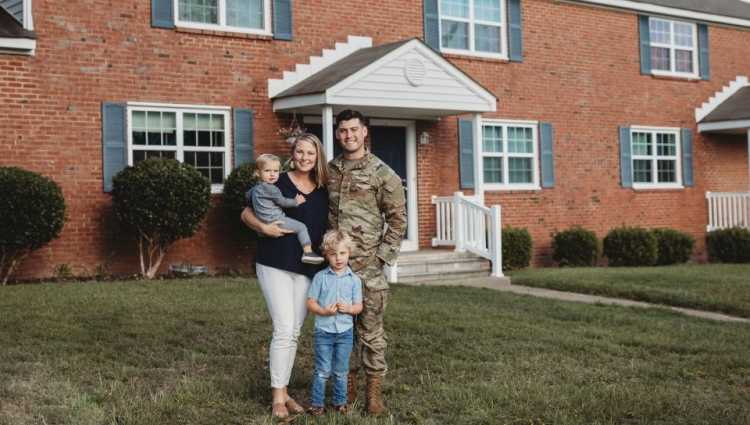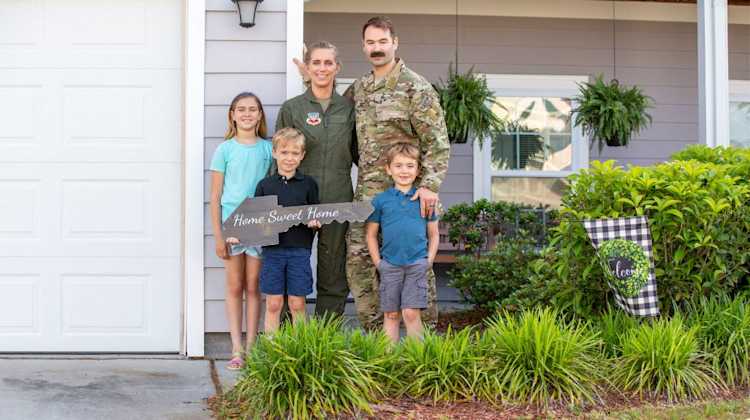2020 Real Estate Market Overview
by Lizann Lightfoot - September 19th, 2021

The post-pandemic real estate market, and what it means for military families
The Coronavirus pandemic has had a strange impact on the real estate market, and in some ways the results are not what was expected. For several months, home sales were low and fewer military families were moving. The temporary suspension of mortgage and rent payments meant that landlords were not able to evict tenants—which was great for tenants, but had a direct influence on the number of properties available. Lower interest rates have made this an incredible time to buy, but fewer homes on the market and rising home prices make it a great time to sell.
To sort out the contradictions of the post-pandemic real estate market, we interviewed Bob Hamrick, Chairman and CEO of Coldwell Banker Premier Reality (CBPR) in Las Vegas, Nevada. He explains the 2020 real estate market and what military families can expect in the next year.
Is it now a buyer's or a seller's market?
Hamrick: It is definitely a seller’s market. That means the seller is in control. That seems to be the case across the country. Low interest rates have caused the demand to be high, while inventory is low. In most places, they could easily handle twice the inventory that they currently have to balance the marketplace better. So now things are in favor of the seller.
What is different about the post-pandemic market?
Usually a first-time home buyer is a big part of the market. But now, most of our transactions are sellers who are buyers. This group feels very confident about their family and their future and has decided during the virus that they want to shelter in place somewhere else. Now first-time buyers are competing with investors who are making cash offers, which is much more competitive than the VA Loan or any other bank loan.
How can military families compete in this changed market?
We are now selling homes for more than they are appraising for. An investor is able to offer cash that is over home value. A veteran is usually not in the position to make that type of offer. We have tried to position military families to help them be appreciated by the seller. We help the buyer write a letter to leverage that and make a more emotional connection. Being able to write a meaningful letter can make a huge difference. And we have often had those offers accepted because the homeowner has a sentimental connection with the buyer.
What can families expect about the home buying process now?
They should anticipate a frustrating process, unfortunately. The question is: will it be worth it? The inventory is low across the country on both the purchasing and the rental sides. Both situations will be frustrating, and in the long-term, purchasing is usually the best opportunity. It is likely that the monthly mortgage payment will be lower than the monthly rental price.
So buying a home is still worthwhile, even in a seller's market?
Yes. In many marketplaces, finding rentals right now is even more difficult after the pandemic because landlords can’t evict tenants and interest rates are so low. The monthly payment on a mortgage is often lower than the monthly price of a rent. So the purchase of a home is worth the time, effort, and frustration of making several offers.
Military buyers are looking at a marketplace that is often only their home for two to three years. For the most part, with the amount of appreciation we are experiencing, homes should go up in value, especially if it is four years from now compared to two years from now. Many military families are keeping their homes as a rental because it can be a great investment for a homeowner and possibly move back to the area after retirement.
Why is inventory so low? Shouldn't there be more homes on the market now?
The lack of inventory is not just because of quarantine earlier in the pandemic. It has something to do with the lack of new construction following the 2008 recession. The amount of new home builds around the country was down. Economists say that we are significantly short of homes because of the lack of construction after the recession. So the low inventory is now even more pronounced because of that time period.
The desire for large single-family homes was low for a while, but now because of the pandemic people are suddenly desiring larger homes, more space, additional rooms, and offices to accommodate this new lifestyle. Builders are now incorporating multiple work spaces within new construction homes. Builders want to accommodate the new reality of working and teaching kids from home. This is a trend, not a fluke, and something that will probably be taking place in the next few years, not just during the next month.
How can military families make the most of this market?
I think the best advice is to associate with individuals in the real estate industry that are providing good guidance that are able to explain as much as possible what the current marketplace is like. If you know the reality, you can make the most of a current market. We have real estate agents within our company who are experts in the military market so they can speak the language and provide the proper guidance. Others who don’t have that experience cannot appreciate the pressure and the challenges that fall on the military family. There are different ways to protect the family, but communication has to be good between the agent and the family so they can write contingencies into the contract to protect for any custom situation: ETP (Exception to Policy) approval, PCS dates, etc. A contingency does weaken an offer, but it provides flexibility for the family.
How will urban flight affect military towns?
Companies are recognizing that remote working is perhaps a positive thing. If that trend continues, the markets that will benefit are the ones that are more spread out, and the markets that are less expensive. The exodus from the urban markets and employees working remotely has a significant impact on these marketplaces. There are multiple reasons to relocate to a more suburban area. In many military towns, there are new construction neighborhoods going up, and these are not just for the military community, but also for civilians seeking remote areas. I believe that situation encourages purchasing even more than renting, because we are already seeing that urban flight take place.
What hopeful trends do you think we will see in 2021?
From a housing perspective, we never expected that the housing market would remain this vibrant through COVID. The logistics behind it do make sense, and we do believe those same demographics will continue through next year. Housing has always been one of the most stable investments: homes serve our own needs, and increase in value. It is often Americans’ greatest nest egg. We think interest rates will continue to stay low, and I am confident in the housing industry for the future.
Bottom line: “Anyone who is in a position to buy should certainly consider it.”









